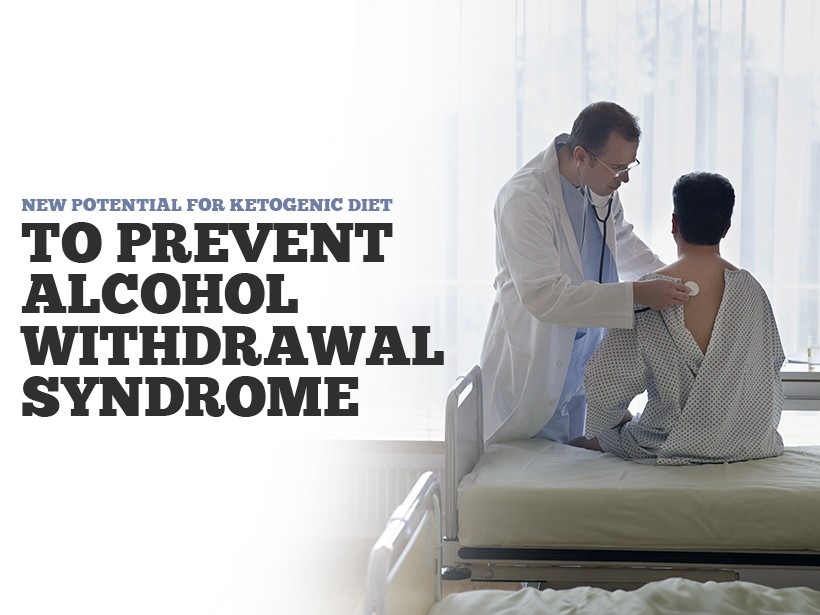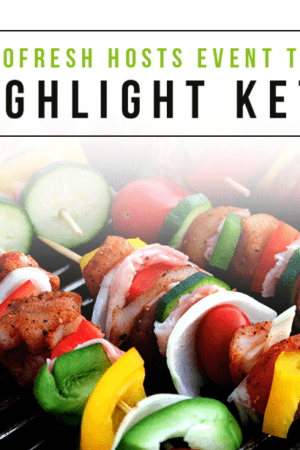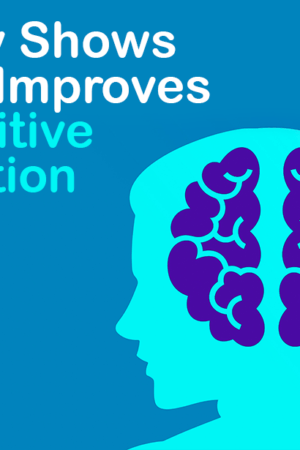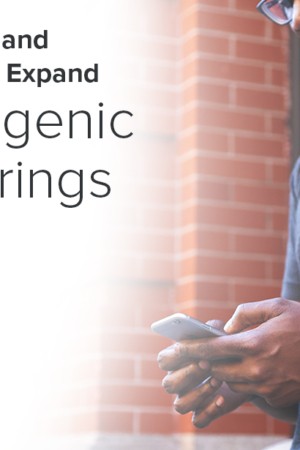A new study shows that the keto diet may be able to prevent Alcohol Withdrawal Syndrome (AWS).1 The current theory is that keto preserves brain chemistry and prevents relapse to a potentially life-threatening condition.
Alcohol Withdrawal Syndrome
Alcohol Withdrawal Syndrome (AWS) is a set of symptoms and signs that occur 24-48 hours after alcohol consumption in alcohol-dependent people who are trying to stop drinking. It is common and usually a mild condition; however, it can lead to dangerous consequences, such as death by seizures.
Alcohol has the ability to affect many parts of your brain. Studies have shown that there are certain receptors in your brain that become irreversibly ineffective through prolonged alcohol consumption. Receptors are structures in your cells that allow your cells to communicate among other functions. For example, one receptor called GABA or gamma-aminobutyric acid type-A receptor is affected by alcohol abuse. Under those conditions, its function is hindered, and anxiety-like behaviors persist.2
There are many receptors in your brain like GABA that can be inhibited under conditions of alcohol abuse, resulting in a number of side effects pertaining to the nervous system.
Prevalence
AWS, as of 1995, was prevalent in less than 5 percent of the US population and 86 percent of those admitted to rehab or detoxification for alcohol abuse.3 Today, there are more than 200,000 cases in the US every year. It’s mostly experienced by 19-60+ year-olds; however, it affects people as young as 6-18 years-of-age.
Symptoms
Symptoms range in severity. AWS is associated with all parts of the body. Symptoms relating to the brain include anxiety, headaches, disorientation, agitation, delirium, hallucinations, insomnia, and seizures. Those pertaining to the rest of the body include anorexia, nausea, vomiting, sweating, rapid heart rate, hypertension, fever, and hyperventilation.
These symptoms are typically resolved within a few days to a couple of weeks. In many cases, AWS is treated in the hospital with medications. However, therapies are also prescribed for healing. Common medications are Diazepam, Lorazepam, and Oxazepam. Therapy can come from a critical care doctor, psychiatrist, emergency medicine doctor, or focus groups.4
How Can the Keto Diet Help?
As a whole, AWS is underdiagnosed and undertreated. This is a common claim by studies with the reasoning that 50 percent of alcohol-dependent people with AWS relapse within just one year of treatment. In other words, treatment is limited in efficacy. So, researchers have turned to metabolism in the brain by considering how the consumption of alcohol alters brain chemistry, as mentioned earlier.
Today, a proposed therapy based on nutrition is the ketogenic diet. The ketogenic diet is thought to be able to manage alcohol withdrawal symptoms during detoxification to prevent a relapse. This has been studied in mice with AWS with promising results, showing that the ketogenic diet is able to significantly decrease the symptoms of alcohol withdrawal.
This promising new direction in the treatment of AWS provides hope for alcohol-dependent individuals. It offers relief and the potential for a safe way to prevent a relapse to a dangerous condition.
NUTRITIONAL DISCLAIMER
The content on this website should not be taken as medical advice and you should ALWAYS consult with your doctor before starting any diet or exercise program. We provide nutritional data for our recipes as a courtesy to our readers. We use Total Keto Diet app software to calculate the nutrition and we remove fiber and sugar alcohols, like erythritol, from the total carbohydrate count to get to the net carb count, as they do not affect your blood glucose levels. You should independently calculate nutritional information on your own and not rely on our data. The website or content herein is not intended to cure, prevent, diagnose or treat any disease. This website shall not be liable for adverse reactions or any other outcome resulting from the use of recipes or recommendations on the Website or actions you take as a result. Any action you take is strictly at your own risk.
- Research Shows Improvement in Anorexia Nervosa Condition With Keto - August 6, 2018
- New Potential for Ketogenic Diet to Prevent Alcohol Withdrawal Syndrome - August 1, 2018
- Woman on Early Menopause Saved By Keto - July 25, 2018




